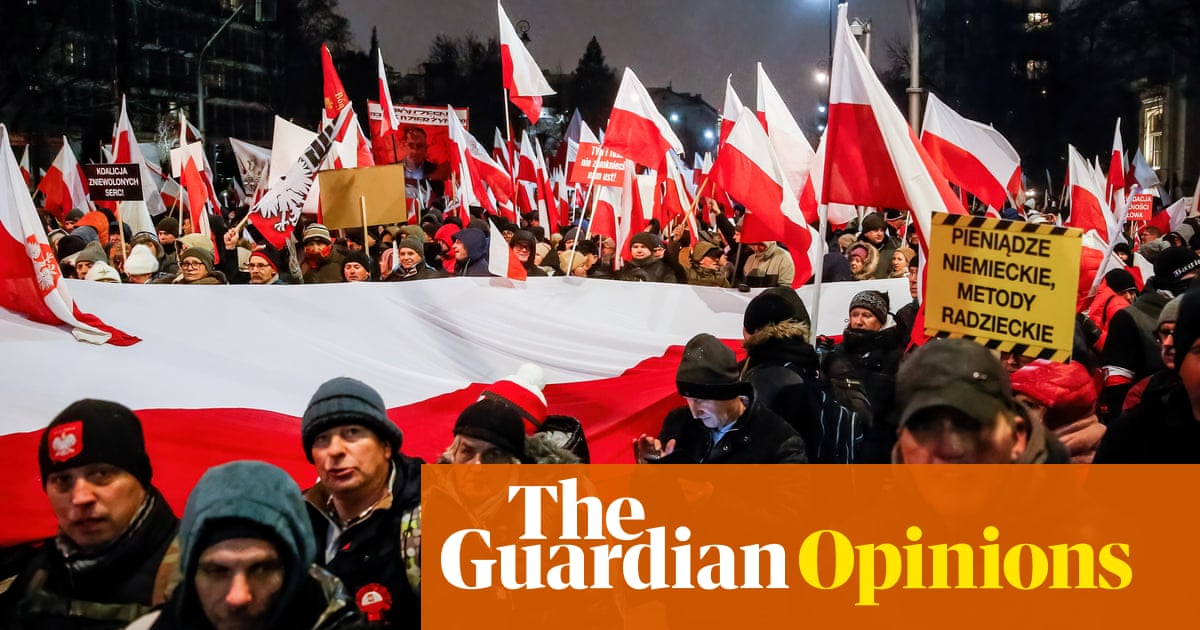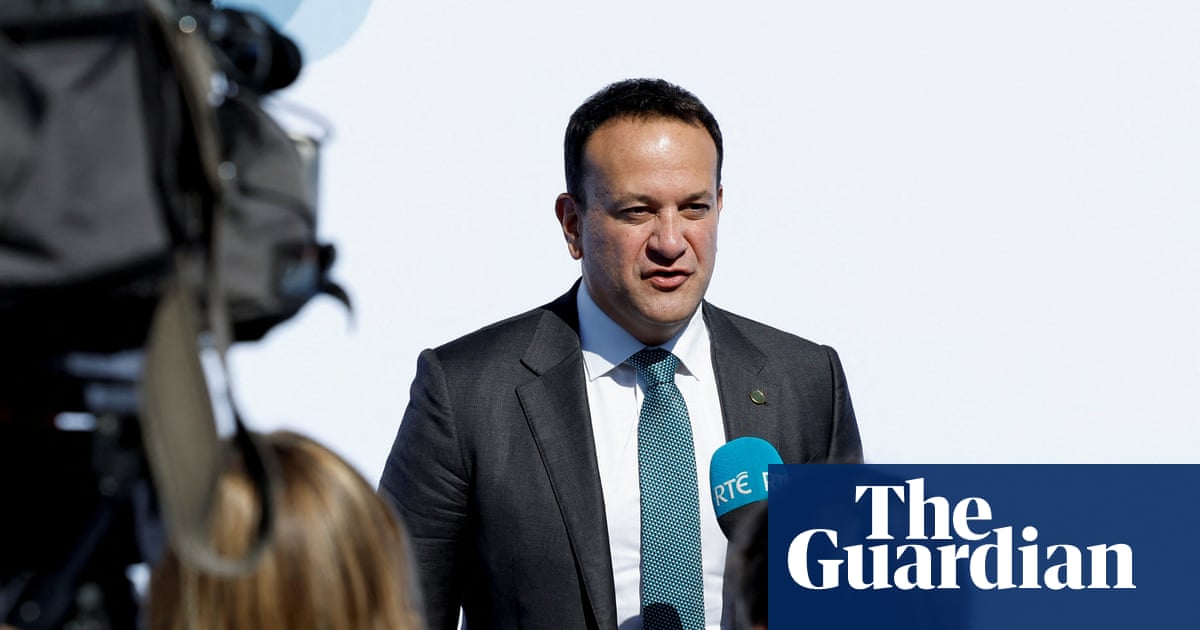
“Evolution or revolution?” The question being asked in Poland today captures the dilemma of trying to restore liberal democracy after eight years of populist state capture. Must one, for instance, break the letter of a specific law in order to restore the rule of law as an overall condition? The Polish experience will tell us something important about the future of democracy inside EU member states. It also prefigures a challenge the United States could face at the end of a second Donald Trump presidency.
The last few weeks in Polish politics have been dramatic, angry and sometimes bizarre. Two former ministers of the previously ruling Law and Justice (PiS) government, convicted of the falsification of documents while in public office, take refuge in the palace of the president, their party comrade Andrzej Duda. While Duda is away at another meeting, the police arrest them in the palace and carry them off to prison. The president says they are “political prisoners”, talks of “rule of law terror”, and even makes a comparison with Bereza Kartuska, a notorious concentration camp in 1930s Poland. PiS launches a protest demo in the snow, deploying the iconography of the Solidarity movement that led Poland to freedom in the 1980s. PiS leader Jarosław Kaczyński says the arrested politicians are heroes who should be awarded the country’s highest honours. Poland’s genuinely tragic and inspiring past is recycled as grotesque parody.
The supposedly “public service” television station, TVP, which for eight years blasted out the most vile, mendacious, abusive propaganda for the ruling party, is taken over by the new government. Former staff are shut out, the station is declared bankrupt as a commercial enterprise but swiftly resumes broadcasting. Its new-style news programmes are incomparably more impartial (I’ve been watching them), but even a legal scholar highly critical of PiS characterises the steps taken to achieve this good result as “revolutionary moves”.
Different courts, some with clearly party-political judges illegally appointed by the PiS government, flatly contradict each other. At moments this feels like what the Bolshevik revolutionary Leon Trotsky called “dual power”. The name-calling gets ever louder, but the new coalition government headed by Donald Tusk, a former prime minister (from 2007 to 2014) and president of the European Council (from 2014 to 2019), continues to purge PiS’s strongholds of embedded state power with what this formidable politician has called “an iron broom”.
Three different threads intertwine in this drama. Most obviously, there’s the difficulty of restoring the institutions of a liberal democracy, built from scratch on the ruins of a Soviet-type system after 1989 and then subject to systematic demolition after 2015, when PiS came to power, but with the country remaining a member of the European Union. Like Viktor Orbán in Hungary, Kaczyński made great efforts to keep the facade of a democratic, pluralist, rule-of-law state, conforming with EU standards. As another legal scholar puts it, you have so-called judges delivering so-called verdicts on the basis of so-called laws. A Potemkin constitutionalism, if you will.
As a result, the restoration of liberal democracy is both more and less difficult than was its original creation after the end of communism in 1989. It’s less difficult externally, because instead of still being in the Kremlin-dominated Warsaw Pact and Comecon, Poland is in Nato and the EU. The EU is not just applauding the efforts of the new government but rewarding it with what may soon be upwards of €100bn in EU funds, withheld from the previous government because of its violations of the rule of law.
It’s more difficult internally, because this is not, as in 1989, an externally imposed one-party dictatorship which almost all Poles – including many of the former communist power-holders – agree must be transformed through a peaceful revolution. Rather, it’s an entirely homemade mess, shrouded for the most part in laws approved by a democratically elected parliamentary majority.
Second, it’s a case of hyperpolarisation, fake news and hysteria strongly reminiscent of today’s United States. Like Maga Republicans and leftwing Democrats, supporters of Kaczyński and Tusk live in different realities, each denouncing the other for violating the rule of law and betraying the nation. A stable liberal democracy depends on a basic social consensus around the legitimacy of key institutions such as parliament, presidency, independent courts and free media. How do you recreate a well-functioning liberal democracy when that minimal social consensus doesn’t exist?
Last, but by no means least, there’s the role of individuals. Kaczyński and Tusk have played leading parts in Polish politics for a quarter of a century, and they hate each other’s guts. Kaczyński, a prime example of the paranoid style in politics, strode up to the parliamentary lectern moments after the Tusk government was sworn in, and denounced the new prime minister as a “German agent”.
As fateful in the current crisis is the country’s president. Duda is weak, vain, easily swayed, and usually ends up doing Kaczyński’s bidding. His own former doctoral supervisor calls him “wobbly”. According to the much-respected first head of Poland’s supreme court, Adam Strzembosz, the president who now plaintively calls on the EU to stop the new government’s violations of the constitution has himself violated the constitution no fewer than 13 times. Instead of playing the vital role of a neutral head of state during a difficult political transition, he has become even more partisan, offering convicted criminals refuge in the presidential palace and bleating fatuous hyperbole.
The new government says it wants a quick cleaning of the Augean stables, before focusing on Poland’s future. That’s easier said than done, especially given Duda’s significant powers of veto and delay. In as much as PiS has a political strategy, it’s probably to make hysterical chaos last as long as possible, in the hope that voters will come back to them in April’s local elections or June’s European ones. There are few signs of this yet; in fact, opinion polls suggest the opposite. But it can’t be ruled out.
Beyond that, the biggest challenge for Tusk and his coalition partners will be to resist the temptation of simply turning the tables, installing their own partisan loyalists instead of the other lot. In short, Poland needs to build back better. By the end of this parliamentary term, in 2027, the public service broadcaster should be more solidly impartial, the courts more fully independent, the president more unquestionably above parties, state-owned enterprises more thoroughly non partisan, the public administration and security services more truly independent – not just than they were under PiS, but than they were under earlier Polish governments, including Tusk’s own previous ones, before the populists came to power. Here’s the real test, the true labour of Hercules.
Timothy Garton Ash is a historian, political writer and Guardian columnist












